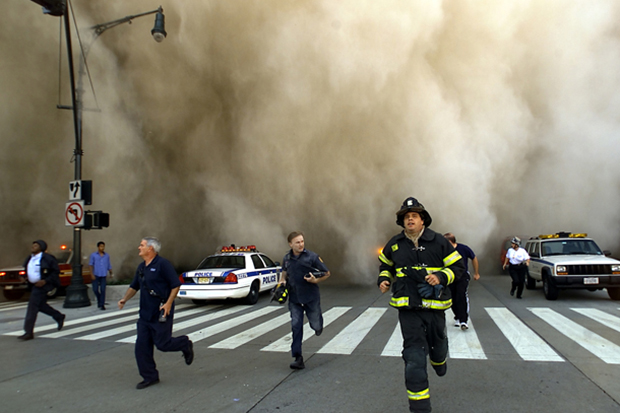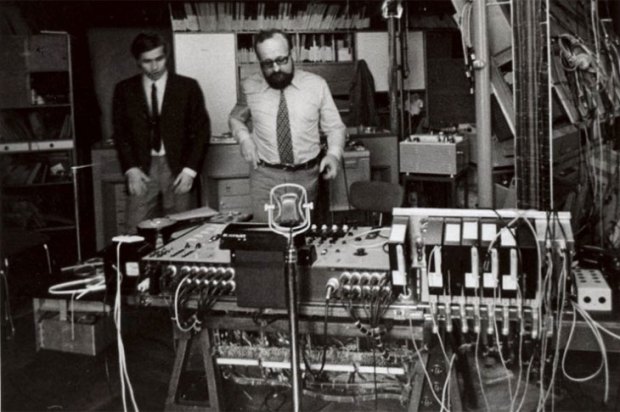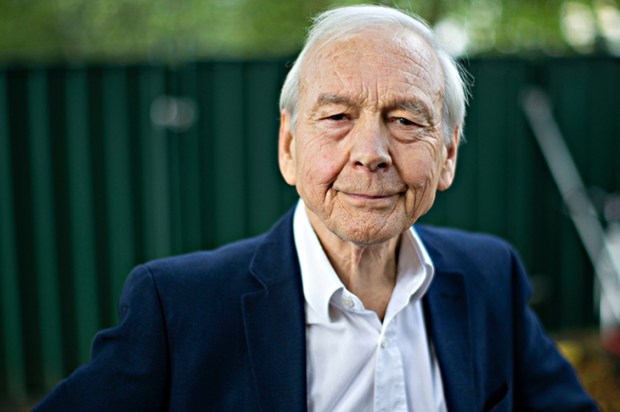Sue Armstrong’s programme on Radio 4 All in the Womb (produced by Ruth Evans) should be required listening for anyone dealing directly with the refugee crisis, with those who have fled from intense fear and terrible violence in their home countries. Armstrong has been investigating recent developments in our understanding of the impact of severe trauma, how it affects not just the mind but also the body, creating physical changes that also need to be addressed. Those who lived through the Holocaust, for example, who were in prison camps or were forced to hide in dark, cramped, inhuman conditions, perpetually afraid that at any moment they might be discovered, have been found to have low levels of cortisol.
This is the hormone that the body releases into the bloodstream as we experience panic and fear and whose main function is to mobilise our energy and will to survive. Much more significant, though, is the discovery that the descendants of those who have suffered war, violence, incessant fear also have lower levels of cortisol than average. The biblical warnings about bad times being passed on from generation to generation are not just mythical prophecies. Scientists now have proof that trauma is passed on, or rather its impact on how we feel, and how we behave, can be superimposed on the DNA of the next generation.
Dr Rachel Yehuda works in New York and had a critical opportunity to investigate the effects of trauma on body and mind after 9/11. We heard from Cathy Langford, who woke up on the morning of 11 September and realised she was going into labour. It was a beautiful day and she and her husband at first thought what a perfect day on which to give birth. But they were living in an apartment within sight of the Twin Towers and as they ate breakfast their building shook and they heard a huge explosion. Looking out from their kitchen window they could see clouds of smoke turning to black, and on the ground the bodies of those who in desperation had jumped out of the building. How could she give birth now?
Two hundred women were in labour on or around that day in the city and they have been found, and their babies, to have low levels of cortisol. Yehuda says these discoveries should alert us to the importance of how we react and respond to trauma survivors. Their prospects for recovery, she argues, are dependent on what happens to them immediately after the trauma. We need to provide ‘a healing culture’. Did someone believe them? Did someone understand what they have gone through? Did someone welcome them?
On the World Service, Catherine Carr’s clever interview series Where Are You Going? (produced by Jo Coombs) has returned for a special season taking us globetrotting to Amsterdam, New York and this week to Kolkata in India. All she does is take her recorder on to the street to ask passers-by where they are going. It’s such a simple idea but, perhaps surprisingly, among the mundane off-to-the-hairdresser or to-meet-a-friend responses Carr often stumbles upon real stories that come across even more powerfully because they’re so unexpected, so random and unplanned.
We heard this time from a woman buying sarees, a young man on his way home from cricket practice (‘I think of myself as a great batsman’), a student on her way to her classroom at the university. What is she studying? Butterfly ecology. Why? ‘It’s not just about the beauty. They are an indicator species…They are also very sensitive.’
Carr meets a lot of strong women, keen to assert their independence, especially from the idea of ‘romantic’ love. Take the student who was on her way to the university library to read Macbeth. ‘Everyone in India talks about Shakespeare as an elite genre of literature,’ she says. But ‘he’s actually right there making big jokes in his plays’. Describe yourself, says Carr. ‘I have very strong opinions,’ she says. ‘I’m a feminist to the core.’ And you totally believe her because of the power in her voice, her vivacity and authority. ‘I grew up in a family where gender roles weren’t so important. In my house it was my Dad who packed lunch and made food very often.’
Another student is on her way to buy books for her course in banking. She’s ambitious to get a good job. ‘It’s very necessary for women because their rights are not safe.’ After marriage, they change. She sounded anxious, but at the same time driven to achieve. You knew she would make it.
Downtown Carr meets a lawyer working for the railway tribunal. ‘Possibly not the most fun job in the world but someone’s got to do it.’ What’s the worst bit of the job? Carr asks. ‘Death,’ he replies. ‘Horrible, horrible death. Lots of multiple limbs. You have to try to maintain the railway’s stance on that.’
The next person who answers Carr’s question happens to be a young man with a limp. ‘What’s happened to your leg?’ It was cut in half in an accident on the railway, he tells her. ‘Is your leg metal or plastic?’ Plastic, he replies. He’s only 19.
Got something to add? Join the discussion and comment below.
Get 10 issues for just $10
Subscribe to The Spectator Australia today for the next 10 magazine issues, plus full online access, for just $10.
You might disagree with half of it, but you’ll enjoy reading all of it. Try your first month for free, then just $2 a week for the remainder of your first year.














Comments
Don't miss out
Join the conversation with other Spectator Australia readers. Subscribe to leave a comment.
SUBSCRIBEAlready a subscriber? Log in